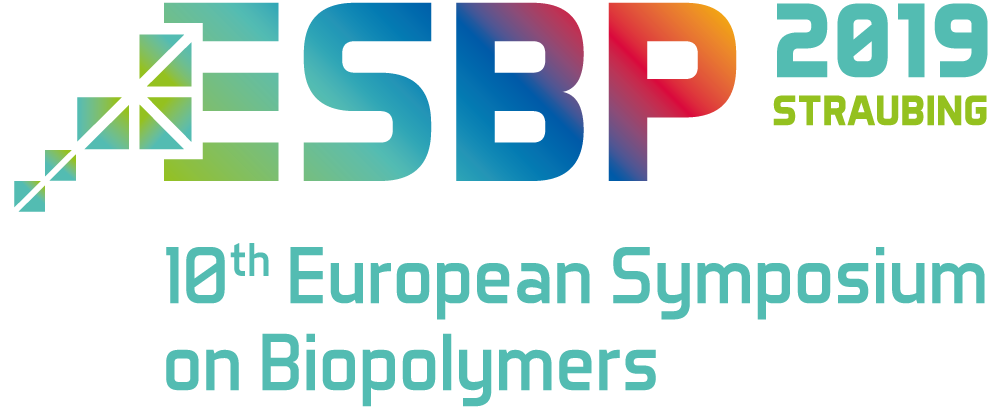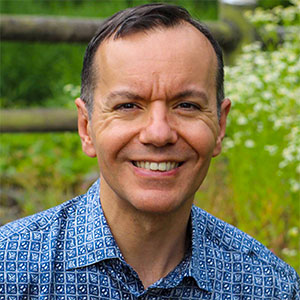
Prof. Dr. Mattheos Koffas
Professor Mattheos Koffas, PhD., received his B.S degree in Chemical Engineering from the National Technical University in Athens, Greece in 1994. He then joined the graduate program of the Department of Chemical Engineering at MIT where he worked on improving amino acid biosynthesis from Corynebacterium glutamicum. After completing his PhD in 2000, he joined DuPont´s Central Research and Development as a research scientist where he worked on engineering the carotenoid biosynthesis of an obligate methanotroph. In the year 2002 he joined the faculty of the Department of Chemical and Biological Engineering at SUNY Buffalo as a tenure-track Assistant Professor and was promoted to Associate Professor with tenure in the summer of 2008. In January of 2011 Prof. Koffas moved to his current position at RPI. In his research career, Prof. Koffas has worked with a variety of microorganisms and natural products including amino acids, polyphenols, fatty acids and biopolymers.
His main work focuses on the biosynthesis of sulfated glycosaminoglycans, such as heparin and chondroitin sulfate, as well as polyaminoacids, such as polyglutamic acid and polylysine. He greatly combines synthetic biology with biopolymer engineering to realize highly efficient industrial process routes. He has published more than 100 peer-reviewed publications, more than 10 book chapters and holds several patents. He is a member of the editorials boards of various Journals in the area of bioengineering, such as the Biotechnology Journal, Biochemical Engineering Journal, Genes, Metabolic Engineering, and he is the Editor of Biotechnology Advances and Metabolic Engineering Communications. He is a fellow of the American Institute of Medical and Biological Engineers.

Prof. Maria Reis
Prof. Maria Reis is full Professor in Environmental/industrial Biotechnology at FCT-UNL. Its main research interests are on the development of sustainable bioprocesses for the removal of pollutants from water and wastewater streams and for the exploitation of industrial wastes for the production of biopolymers and bulk chemicals. Within this research area, she published more than 200 papers in scientific journals with peer review. She is co-author of 4 National patents and 5 International Patents. She coordinated 20 national and international projects (team leader), out of which 9 European Projects and 6 were co-funded by industrial companies, and participated as team member in 22 research projects. She co-supervised 20 PhD students and is currently co-supervisor of 11PhD students. Her scientific work has been distinguished with several awards and she was the winner of the Solvay & Hovione Ideas Challenge SHIC’08 Prize-Solvay prize in 2008. Nominated and Elected to the Portuguese Academy of Engineering in 2009 and Elected as IWA Fellow, September 2010. She is Editor of the Water Research (Elsevier).
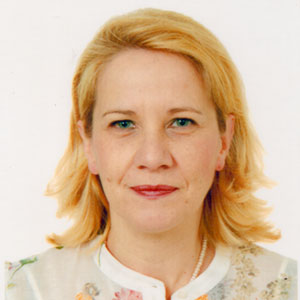
Prof. Dr. Ebru Toksoy Öner
Professor Ebru Toksoy Öner received her PhD degree in Chemical Engineering in the year 2000 and currently she is working as a Professor at the Bioengineering Department of Marmara University (Istanbul, Turkey). She is the Principal Investigator of the Industrial Biotechnology and Systems Biology (IBSB). Prof. Toksoy Öner’s current research in IBSB focuses on biomaterials, functional foods and systems microbiology. Ongoing research topics are functional biosurfaces, laser-based technologies, extremophiles, fructans, levan polysaccharide, strain improvement for exopolysaccharide production, production of biopolymers form extremophiles, and optimization of fermentation processes to design high-yield production lines.
Prof. Toksoy Öner has been the coordinator of several national and international projects and partner in COST Actions. She is the Member of European Federation of Biotechnology (EFB), American Nano Society (ANS), American Chemical Society (ACS), International Society for Extremophiles (ISE), Turkish Biotechnology Society and author of various book chapters, reviews and more than 80 peer-reviewed research articles.
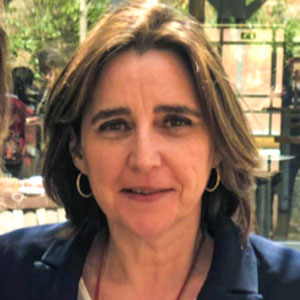
Dr. M. Auxiliadora Prieto
Dr. Auxiliadora Prieto received her PhD in Pharmacy in the year 1996 from the Complutense University of Madrid, followed by two EMBO fellowships. First, at the Federal Institute of Biotechnology, Germany, in the group of Prof. Kenneth Timmis. Then, as Postdoc fellow at the Institute of Biotechnology, ETH Zürich, Switzerland, in the group of Prof. Bernard Witholt. Currently she is Scientific Researcher at the Spanish National Research Council (CSIC). Dr. Prieto is the coordinator of the Interdisciplinary Platform for Sustainable Plastics towards a Circular Economy-SusPlast, which is integrated by eight Institutes of CSIC that count with multidisciplinary biotechnological researchers, dedicated to bioprospecting, biocatalysis, biotransformation, environmental microbiology, synthetic and systems biology, plastics and bioplastics synthesis and biodegradation. In addition, this platform includes specialists in materials engineering, packaging, design of functional materials, modification of surfaces and biomaterials which intensively cooperate with SusPlast groups specialized in waste management for chemical and biotechnological valorisation of bio-based polymers and other value-added products.
At the Biological Research Center (CIB-CSIC) she is the Head of the Polymer Biotechnology group as part of the Plant and Microbial Biotechnology Department. The group aims to explore and exploit the bacterial abilities for producing and degrading bio-based polymers (polyesters and bacterial cellulose) in order to contribute to global sustainability, using tools of molecular biology and metabolic engineering, combined with new omics technologies and synthetic biology. Dr. Prieto has participated in, led and/or coordinated national and international projects and is main inventor of several patents, three of them licensed to bio-tech SMEs dedicated to the production of bio-plastics. She is co-founder of the SME Darwin Bioprospecting Excellence SL. Dr. Prieto has published more than 80 international scientific papers and is Editor in chief of Microbial Biotechnology (Wiley).

Prof. Dr. Dieter Jendrossek
Professor Dieter Jendrossek studied biology at the University of Göttingen, Germany, where he also completed his PhD (1988) under supervision of Prof. Hans G. Schlegel and Dr. A. Steinbüchel. In 1990 he started to build up his own research group with a focus on the biodegradation of PHB and other PHAs by PHA depolymerases (PhaZs). After completion of his Habilitation in 1995 and a short stay in Prof. H. Schrempf´s lab (molecular biology of Streptomycetes) he broadened his research interests to other topics such as biodegradation of rubbers by haem-dependent rubber dioxygenases, monoterpene metabolism in Pseudomonas, biochemistry of squalene hopene cyclases, since 2005 molecular structure and cell biology of PHB granules (carbonosomes) and – most recently – formation, molecular structure and function of polyphosphate (voluntin granules) and acidocalcisomes in alpha- and beta-Proteobacteria. In 1999, he had moved to the University of Stuttgart where he is since then a Professor for Microbiology and Biochemistry. In 2004, Dieter Jendrossek was also a visiting professor at the German University at Cairo (GUC), Egypt, where he established lectures and beginner courses in microbiology.
Prof. Jendrossek has published about 150 original papers and several reviews in international journals. He is on the editorial board of Applied and Environmental Microbiology since 2013 and has multiple responsibilities in the German Association for General and Applied Microbiology (VAAM).

Dr. João Sousa
Dr. João Sousa got his PhD degree in Microbiology from Wageningen University in 2017. His PhD work was performed at Wetsus – European Center of Excellence for Sustainable Water Technology where he worked on microbial sulfidogenesis processes to apply in the gas treatment industry. Since 2015 he works at Paques, a global company leading in biological wastewater and gas treatment. Paques has a strong innovative character and a dedicated R&D group located in the Netherlands, being João the Head of Emerging Technologies in this group. His team focus is on developing new technologies to produce higher value products (e.g. short-chain organic acids, medium chain fatty acids and PHBV) from organic waste streams, mainly wastewater and source separated organics. João is involved in several joint projects with different universities to develop further these technologies and explore new ideas.
The main goal of Paques is to bring the most promising technologies to the market. Several technologies have been or are being tested at pilot scale and the team is currently up-scaling the PHBV production from wastewater to demonstration scale.
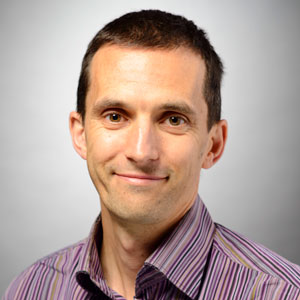
Prof. Kevin O’Connor
Professor O’Connor is director of BEACON SFI bioeconomy research centre, Professor of Applied Microbiology and Biotechnology, a Principal investigator in the UCD Earth Institute and a member of the school of Biomolecular and Biomedical Science at University College Dublin, Ireland. He is chairperson of the scientific committee for the €4 billion public private partnership Biobased Industries Joint Undertaking (BBI JU), a former member of the European Commission biobased products expert group and a previous member of European Commission committee entitled the “lead market initiative for Bio-based products (2008-2011).
His research interests are integrated biorefining, Biobased chemicals, biodegradable polymers, biocatalysis and protein engineering. Professor O’Connor has published over 100 international peer review articles and made of over 200 contributions at national and International conferences. He has filed 8 patents and successfully licensed 3 technologies resulting from his research work. Professor Kevin O’Connor is the founder of Bioplastech a university spin out company with technologies for the conversion of residues and biobased resources to biodegradable polymers and Nova Mentis a second campus company established to commercialise a novel antioxidant with health promoting properties. Professor O’Connor was a key driver behind the development of the €6M rural Bioeconomy campus at Lisheen, Co Tipperary and the Irish EU Model demonstrator region for the sustainable production of chemicals.

Dr. Alan Werker
Dr. Werker is a hybrid environmental engineer and materials scientist with 30 years of experience in both academic and industrial research and development efforts. For 14 years, he led the developments within a trans-disciplinary team from fundamental know-how to bioprocess development in piloting proof of concept of producing polyhydroxyalkanoates from within wastewater treatment facilities. His activities are and have been engaged with national and international academic, corporate, and public/private collaborations in basic research, thesis supervision, EU Consortium Projects, and, as well, practical business development challenges and networking for establishing bio-based value-added chains from renewable resources. Currently, he is a co-owner and consultant with Promiko AB (www.promiko.se) in Sweden, a research theme leader with Wetsus (www.wetsus.nl) in the Netherlands, and an Adjunct Professor, School of Chemical Engineering, at the University of Queensland in Australia. His efforts are in continuation to support communities and industries with fundamental as well as practical organic residuals management challenges and opportunities with bioprocesses, that, ideally, lead to renewable resource generation.

Prof. Dr. Manfred Zinn
Professor Manfred Zinn studied Biotechnology at ETH Zurich, where he also received his PhD in the research group of Prof. Bernard Witholt studying polyhydroxyalkanoates (PHA) biosynthesis in chemostat cultures. Between 1997 and 2001 he was research associate at the University of Tennessee and at Harvard University at Cambridge, U.S.A. studying the biofilm formation on solid surfaces. Back in Switzerland, he did a postdoc at Eawag Dübendorf in the group of Prof. Thomas Egli focusing on multiple nutrient limited growth conditions. From 2002 until 2011 he was group leader at Empa St. Gallen, developing PHAs for medical applications. Since 2011 he is Professor in Biotechnology at the University of Applied Sciences and Arts Western Switzerland (HES-SO Valais Wallis) and teaching Bioprocess Engineering at EPF Lausanne. At HES-SO Valais-Wallis he is leading the research group Biotechnology and Sustainable Chemistry and is research is focused on designing bioprocesses using sustainable and waste substrates (e.g., syngas and CO2), scale up of bioprocesses from micro- to pilot scale (300 L) using process analytical technology and processing of PHAs for medical (e.g. drug delivery by nano- and micro-capsules) and industrial applications (e.g. surface functionalization and 3D printing). Prof. Zinn has published more than 72 papers, 9 book chapters and proceedings, and is Specialty Chief Editor of the journal Frontiers in Bioengineering and Biotechnology and on the editorial boards of Applied Environmental Biotechnology as well as International Biodeterioration & Biodegradation.

Prof. Ipsita Roy
Professor Ipsita Roy is an expert in microbial biotechnology, natural biomaterials and their biomedical applications. She has recently joined the Department of Material Science and Engineering, Faculty of Engineering, at the University of Sheffield as Professor of Biomaterials. Previously she was Professor at the School of Life Sciences, University of Westminster, London. She is also Visiting Professor at NHLI, Faculty of Medicine, Imperial College London. Ipsita was awarded the prestigious Inlaks Scholarship and the Overseas Research Students Award to study for her Ph.D. at the University of Cambridge. During her time at Cambridge she was awarded the Churchill College Scholarship, the Lundgren Scholarship, Leche Trust Scholarship and the Cambridge University Philosophical Society Fellowship Award. Her PhD at the Department of Biochemistry was on a B12-dependent enzyme, methylmalonyl-CoA mutase. Her postdoctoral work was at the University of Minnesota, USA, at the Bioprocess Technology Institute, where she worked on fatty acid biosynthesis.
Subsequently, Professor Roy taught at the Indian Institute of Technology, India, for four years as an Assistant Professor. During this time she worked actively on the production of biodegradable polymers from Streptomyces. Ipsita has been at the University of Westminster since 2000, is now the Research Director of the School of Life Sciences and leads the Applied Biotechnology Research Group. She has published over 100 papers in high ‘Impact Factor’ journals such as Biomaterials, Biomacromolecules, Journal of Royal Society Interface, Acta Biomaterialia and ACS Applied Materials Interfaces. She has presented her work at numerous international conferences. Her group is currently focussed on the production of novel polyhydroxyalkanoates (PHAs), a group of FDA-approved natural polymers and their characterisation. She has pioneered the production of PHAs from Gram positive bacteria which lack immunogenic properties and hence are excellent materials for medical applications. Her group is involved in the application of PHAs in the area of hard tissue engineering, soft tissue engineering, wound healing and drug delivery. She is an editor of the Journal of Chemical Technology and Biotechnology (JCTB) and was the special editor of an In Focus Issue of JCTB on Biodegradable polymers and Controlled Drug Delivery. She is on the BBSRC, EPSRC, NSERC, Canada, FWF, Austria and NSFC, China, ESF, MUIR grant-reviewing panels. Her work has been funded by the EPSRC, EU, DuPont and WESTFOCUS, London. Ipsita has been the scientific coordinator of two large EU projects REBIOSTENT, worth 4.9 million Euros with 14 consortium members and HYMEDPOLY, worth 3.5 million Euros with 12 consortium members. She was also the work package leader of another large EU FP7 project, NEURIMP, worth 4.4 million Euros with 8 consortium members. Currently she is work package leader in another H2020 project POLBIOSKIN worth 3 million Euros with 12 consortium members. All four projects involve the use of PHAs for medical applications, drug eluting biodegradable stents, nerve guidance conduits, antibacterial polymers and wound healing. Also, she has recently received EPSRC funding for the development of smart wound healing patches (CYCLOPS) and drug eluting biodegradable stents.

Prof. Etienne Paul
Prof. Etienne Paul studied Biotechnology & bioengineering at the University of Marseille, France and subsequently conducted his PhD under supervision of Gérard Goma at the University of Toulouse where he is currently Professor. He has twenty seven years of experience in the field of bioprocesses and bioreactors applied for biological treatment of wastewaters and wastes and more recently for their valorisation. His current main research focuses on the production by mixed cultures and characterization of biopolymers (PHAs, bioflocculants, gels, EPS …) and converting these polymers into useful material.
He has published over 60 SCI-tracked journal papers (H-index 25) and three book chapters in English, participated in 67 international conferences and is the main inventor in 5 patents. He has supervised 30 PhD students and has coordinated approximately 15 national or international research programs.
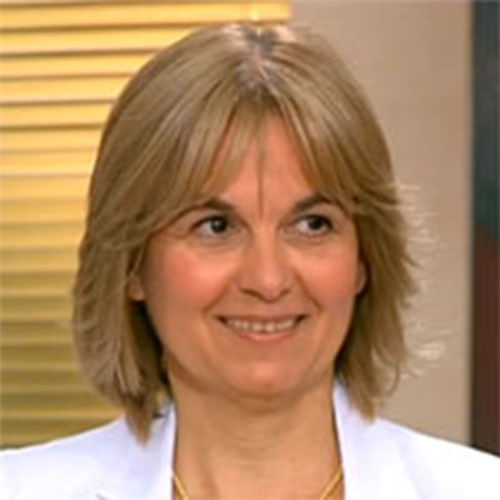
Prof. Valérie Langlois
Valérie Langlois has completed his PhD at the age of 28 years from University Paris VI. She is now deputy director of the East Paris Institute of Chemistry and Materials Science in Thiais, France (Université Paris Est, CNRS). Her main scientific interests are related to biodegradable polyesters, their chemical modifications and synthesis of copolymers. Her research activities are devoted to fundamental aspects of biodegradable polyesters in relation with their biomedical applications such as drug delivery systems, tissue engineering or antibacterial materials. She has published more than eighty publications in this research field.
